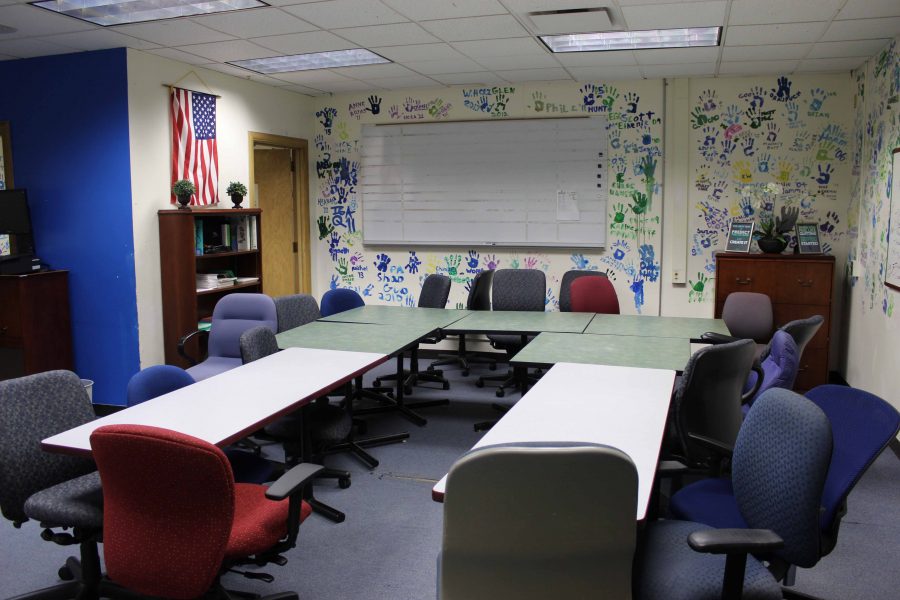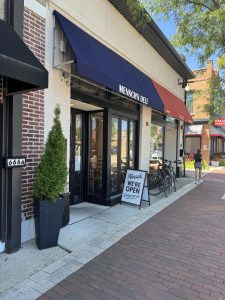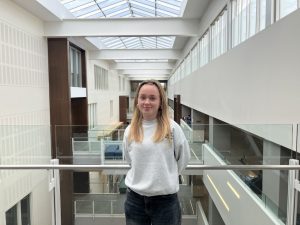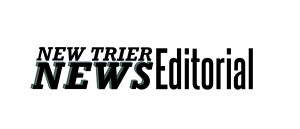New SA sponsorship jeopardizes student autonomy
The dynamic of student alliance has changed with new sponsors
October 5, 2016
After 11 years, Student Alliance is undergoing a major administrative change as Student Activities Coordinator Stacy Kolack, MCL Teacher Stephanie Gamauf, and English Teacher David Noskin took the place of the two former sponsors, Social Studies Teachers Steven Drajpuch and Carolyn Gerhardt.
“Student Alliance was sort of dwindling. We were losing members. We were going from a twenty to thirty person group down to, at the end of last year, fewer than ten.”
Why the former sponsors were replaced is still in question. In the past few years, Student Alliance has struggled with two former student presidents being impeached as well as declining student participation. “Student Alliance was sort of dwindling. We were losing members. We were going from a twenty to thirty person group down to, at the end of last year, fewer than ten,” said current Student Alliance President Jacob Shaw. However, he asserted that this was not in any way due to the former sponsors.
According to Jacob Imber, the Student Alliance PR Head, the former sponsors ran the group differently. “I think they had a pretty hands off approach because that was the tradition with Student Alliance,” said Imber. “Gamauf, Noskin, and Kolack are very hands on in organizing the club and making sure that everyone’s doing what they are supposed to.”
Drajpuch and Gerhardt had been commuting between the Northfield and Winnetka campuses in past years. Starting this year, however, both teach solely at the Northfield campus.
In relation to being replaced, Drajpuch said that “the school had a different vision for what they wanted student government to be. I had a different mindset on what Student Alliance should be and what role student leadership should play in the building. It was time for me to do something different. I think they felt that it was time for Student Alliance to be different.”
The administration has not yet responded to attempts to contact them.
Similar to Imber’s account, Shaw further explained the former sponsors’ role in the club. Shaw said, “Drajpuch and Gerhardt had a very different leadership style. It was not bad but it was different. They took as extreme a background role as you can. We had a small group, difficulty with the administration, history of impeachments and problems that were of course not the sponsors’ fault, but a change in sponsor leadership style has been refreshing for us.”
Kolack didn’t address this disagreement on how the club should be run as to why Drajpuch was no longer a sponsor. She said, “They weren’t replaced. Sponsors come and go. They filter in and filter out. People make decisions for different reasons.”
However, anonymous sources call into question whether or not the administration values student voices. A recent change to how the students communicate with other administrators and teachers has made some from Student Alliance wonder whether there is too much censorship of student opinion.
In previous years, Student Alliance members have used an email account linked to the school network in order to contact administrators and faculty as well as for students to contact them. According to Shaw, they were violating an important school policy. Currently, the sponsors check the email account and forward the emails to the students. The students then respond to the emails indirectly by first sending them to the sponsors, who redirect them to other administrators.
“There is definitely that extra step when we are emailing teachers or talking to adults,” said Imber.
While some members are concerned that this extra step demonstrates a lack of consideration for student input, Shaw quickly dismisses this. “The changes have not been made in order to diminish the importance of the Student Alliance. They have been conversely made so that the Student Alliance is more powerful and that is happening. We’ve already received over a dozen suggestions online since the beginning of the year. We are working harder than ever to make our voices heard.”
Kolack, along with the other sponsors and Shaw, felt that it was a natural fit for her to run the group. “Ms. Kolack, given her role within the larger institution, has great perspective and expertise in that area,” Gamauf said.
Shaw sees the new leadership as a benefit in expanding Student Alliance’s role in the school.
“Student Alliance is very unique in that we depend on collaborating with the administration,” Shaw said. “So, any separation from the administrations hurts us. We want to get closer and we are getting closer, which is all good.”
In order to accommodate Kolack’s schedule, Student Alliance was moved from ninth to third period. It is, however, still considered a class club. Shaw explained that this hasn’t been a major issue for the exception of one student, who isn’t able to meet during that period due to a prior conflict.
“I am aware that our previous sponsors expressed concern that these changes-turning over leadership, moving the meeting period, etc.-would censor us or diminish our voice. Absolutely not true,” said Shaw. “We are just as official a club and we are more effective now. They are not making us a third period club so we are less collaborative with other groups and we have less of a voice.”
Imber commented on the overall changes that have occurred this year and how it has affected the group’s functioning. “It’s just different. There’s less autonomy with the students. Like our sponsors have more of a say of what we are doing and when we do it.”
“This year we are not just getting started on a new year, we are trying to turn over a new leaf. We are starting fresh to fulfill its full potential as student government. If our old sponsors were concerned that this may hurt us, we are stronger than ever,” Shaw said.











































